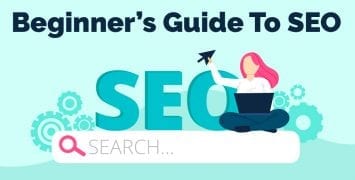Did you know that mobile SEO benefits outrun those of desktop SEO? Mobile users now outnumber desktop users in the online market.
Mobile-first search algorithms are taking over and Google keeps giving priority to mobile-friendly websites, resulting in plummeting rankings for poorly optimized websites.
While scrambling to adapt and stay relevant, many still haven’t realized that the SEO itself is quite different.
Read on to find out how to get ahead and maximize mobile SEO benefits.
Optimize Your Google My Business Entry
This the top priority for business owners looking to improve SEO.
You Google My Business will typically be the first thing people see when they search for your business, especially when searching on Google Maps or a specific place in the area. That’s why a good Google My Business page is so important for SEO and especially for local SEO benefits.
The great news: It’s free and easy to set up!
Google My Business is where many customers find your address, business hours, phone and e-mail. So make sure these are always up to date and matching the info on your site.
Describe your service in as much detail as you can, this will get you more search hits when people do specific searches.
Include plenty of photos of your business to give an accurate and professional impression.
Ask customers to leave reviews, not just for the good rating, but also because positive reviews will boost your page rank.
Review and Update Directory Listings
Mobile users also use a number of other websites and tools to get information about your service or product. Tripadvisor, Yelp, Citysearch, Angie’s list, etc.
You may be listed on some sites without your input, and the information will sometimes be incorrect. Search for your business and contact the right people to make the necessary corrections.
Keeping things up to date and facts consistent has many SEO benefits, and will help search engines find your website.
The Social Media Funnel
Social media and mobile traffic go hand in hand. Social media is probably your biggest source of mobile traffic. About 80% of social media usage is from mobile devices.
Give your website a traffic boost with a strong Facebook page by providing accurate facts.
Interact with your audience on social media. Getting comments, likes, retweets, and shares will make you more visible and lead to more clicks on your inbound links. This, in turn, gives you more traffic and a better ranking.
Having your social media channels set up and streamlined will greatly benefit potential future marketing strategies since platform specific advertisement campaigns already have a solid foundation.
Mobile Keywords for SEO Benefits
Mobile SEO benefits from mobile specific keywords.
Since typing with your thumbs on a little smartphone screen takes much longer than on a computer keyboard, mobile users tend to use shorter and simpler search phrases.
For the same reasons, mobile users are more likely to let search engines autocomplete their search phrases instead of typing it all in. Get to know the autocomplete suggestions, and build some keywords around them.
If you have very little experience with these concepts and functions, going about this yourself can be very tough. But you don’t want to miss out on those SEO benefits.
You can buy a handful of optimization tools or hire someone to optimize your site. Or you can use Google Search Analytics and SEO Crawler
Remember Local
You’re probably underestimating the massive role location plays in mobile searches. Surely you’ve used your phone to search for something like “cheap mechanic downtown” or “supermarket in Omaha.”
Searches like these are the main source of mobile traffic. And mobile users don’t tend to browse through pages of search results, so getting a high position is very important. This why local SEO benefits your website.
Start with the easiest part. Make sure your location is stated clearly in the site’s meta-description and title tags. And put a map on your site so people know your location with one click.
Get your local citations in order too. Use local business listings, local newspapers, yellow pages. Do a web search for [your city] directory and start adding your information. If you’re a business owner, put your info on major citation directories like Neustar and Express update too.
Not only will people have more places to find you, more citations make it easier for search engines to find and display you accurately.
Consistency is key, any misspellings or outdated information can confuse search engines and make them display the wrong information, or not show your site at all.
Make Your Website Mobile-Friendly
Google actually boosts the rank of sites that meet its “mobile-friendly” criteria. Let’s look at how you can optimize your site.
First of all, don’t make a duplicate website. This a terrible idea that will lower your ranking. Make your website adaptable instead. Use responsive design and prepare your content to make your website fit almost any screen.
The page rank bots know that size matters. Fonts should be at least 14px so people don’t have to zoom in to read. Buttons should be at least 44x44px for easy clicking and to avoid clicking the wrong thing.
Do away with complex menus and minimize text input, they are hard to use on a phone. Replace them with buttons and lists.
Streamline your website. It shouldn’t take more than a few clicks for the users to get what they want. Also, make sure your website doesn’t rely on plugins and software that mobile devices generally don’t have.
Think of anything else that complicates or slows your site down. Loading speed is a very important factor in mobile-friendly rankings. Try your page speed with our site auditor.
This test by Google also helps you see how mobile-friendly your page is.
Want Easier Mobile SEO Benefits?
Do you feel overwhelmed by all these factors and procedures? Are you thinking, there must be an easier way to do this? Contact us today to handle your Mobile SEO.




